Top Materials Used by Sports Wear Manufacturers and Sweatsuit Vendor Wholesale for Performance Gear!
 2024-03-04
2024-03-04

 Sansansun
Sansansun
Introduction
In the realm of sports gear, materials matter. This blog delves into what yoga wear manufacturers and sweatsuit vendor wholesale choose. We investigate fabrics that enhance performance, with each choice being a testament to quality and innovation. Dive deep into the world of yoga wear manufacturing.
The Evolution of Sportswear Materials!
Yoga wear manufacturers weave innovation into every stitch. Fabrics, once mere cotton, now blend spandex, nylon, breathing life into stretchability. This evolution mirrors athletes' needs: endurance, comfort, performance. Each piece is a testament to technology's march.
Moisture-wicking capabilities are once a dream but now standard. Asanas demand flexibility; materials respond, evolving from rigid to resilient.
In this fabric dance, yoga wear transcends, becoming a second skin, a fusion of science and art. Yoga enthusiasts reap benefits: wear that supports, enhances, empowers. Each threads always a narrative of progress, a commitment to excellence.
Synthetic Fibers: Revolutionizing Sportswear!
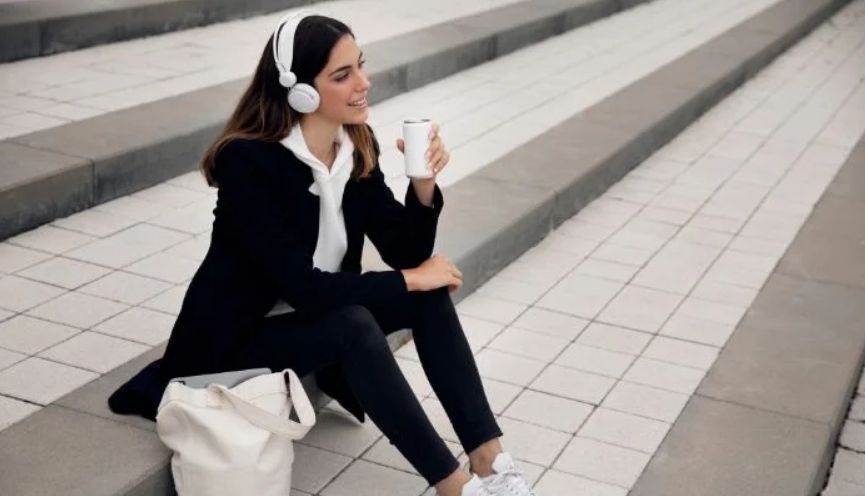
Polyester
In the realm of yoga wear, polyester reigns supreme. Its resilience defies repeated stretches, holds colors fiercely. Lightweight, yet strong, it dries rapidly, shunning moisture.
Manufacturers harness these traits, crafting gear that endures supports. Each garment, a blend of science and utility, attests to polyester's dominance in sportswear.
Nylon
Nylon, a marvel in sportswear, offers unparalleled strength and flexibility. Yoga enthusiasts cherish its soft touch, enduring nature. It resists abrasions, mocks wear and tear, championing longevity. Nylon's versatility allows for sleek, form-fitting designs. Manufacturers exploit this, offering apparel that moves like a second skin, yet withstands the rigors of intense practice.
Spandex
Spandex, the essence of elasticity, revolutionizes yoga apparel. It stretches, yet never loses its shape. Ideal for demanding poses, it offers freedom, comfort. This fiber, woven into every yoga outfit, empowers movement. Manufacturers recognize its value, embedding it in their designs. Spandex turns ordinary wear into a canvas of possibility, a testament to the fusion of form and function.
|
Attribute |
Polyester |
Nylon |
Spandex |
|
Strength |
High; resistant to stretching, maintains shape |
Exceptional; surpasses polyester in strength |
Not known for strength; offers remarkable elasticity |
|
Durability |
High; resistant to wear and tear |
Highly durable; excellent abrasion and impact resistance |
Less durable; but enhances durability when blended |
|
Stretchability |
Limited; slight give |
Moderate; stretches for comfortable movement |
Exceptional; significant stretch and recovery |
|
Elasticity |
Low; lacks significant bounce-back properties |
Low; some stretch but less snap-back |
High; stretches several times original length |
|
Shape Retention |
Good; resists sagging and wrinkling |
Good; recovers shape after stress |
Excellent; helps fabrics retain shape |
|
Breathability |
Moderate; less than natural fibers |
Moderate; similar to polyester |
Depends on blend; not inherently breathable |
|
Moisture-wicking |
Good; draws moisture away from skin |
Good; effective sweat management |
Depends on blend; contributes to moisture management |
Table on Synthetic Fibers: Revolutionizing Sportswear!
Natural Fibers and Blends: A Sustainable Choice!
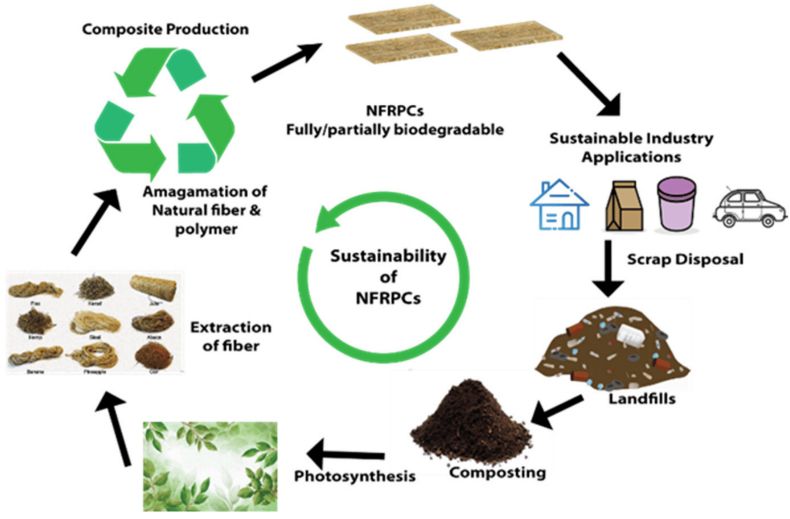
Cotton in Sportswear
Yoga wear manufacturer embrace cotton for its natural comfort. Breathable, soft, cotton keeps the body cool. Ideal for low-intensity yoga, it offers a gentle touch on the skin. It's a sustainable choice, connecting wearers with nature. In cotton's weave, comfort intertwines with eco-consciousness.
This fabric proves that simplicity and functionality can coexist. Cotton, in its unassuming elegance, remains a staple in yoga apparel.
Wool
Wool, often overlooked in sportswear, brings unique benefits. It regulates temperature, suitable for outdoor yoga in varied climates. Natural moisture-wicking properties keep the practitioner dry. Wool's resilience makes it a long-lasting choice for yoga wear.
It offers a natural, biodegradable option, aligning with sustainable practices. Wool in yoga wear is about embracing nature's own ingenious solutions. In every woolen thread, there's a story of warmth and sustainability.
Bamboo Fiber
Bamboo fiber stands out in yoga wear for its softness. It's naturally antibacterial, keeping the fabric fresh. Breathability is its forte, providing comfort in heated yoga sessions. A sustainable resource, bamboo grows rapidly, minimizing environmental impact.
Manufacturers harness its qualities to create eco-friendly, high-performance yoga wear. In bamboo's fibers, there's a harmony of ecology and functionality. It's a testament to innovative, earth-friendly solutions in sportswear.
Innovative Fabric Technologies for Enhanced Performance!
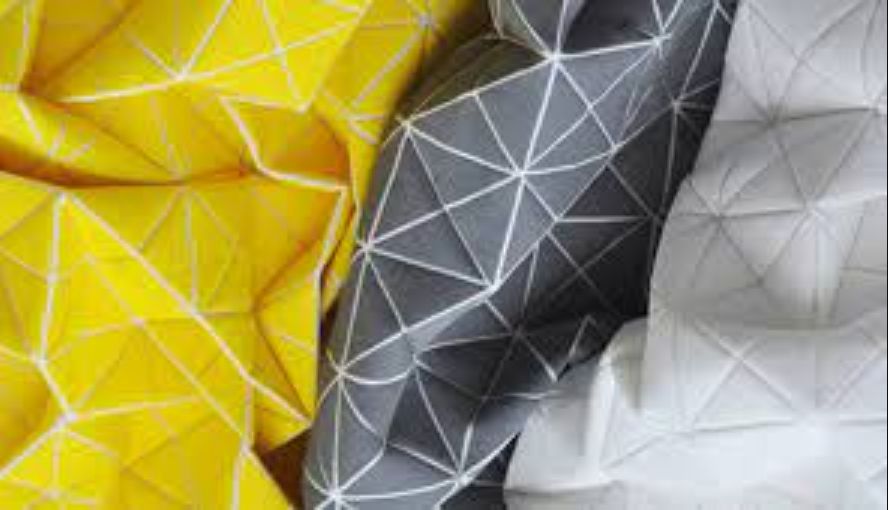
Compression Fabrics
Compression fabrics, a marvel in yoga wear, embrace muscles with calculated pressure. They enhance blood flow, quicken recovery. Every thread, engineered for performance, supports without constraining. Manufacturers use these fabrics to craft garments that blend support with comfort.
Wearing these, yogis feel a subtle, yet potent embrace, aiding their practice. The fabric's technology, an unseen coach, guides muscles through each pose. It's a symphony of science and artistry, offering not just wear, but an ally in every movement.
Thermal Regulating Fabrics
Thermal regulating fabrics, woven into yoga attire, maintain optimal body temperatures. They adapt, responding to body heat and external conditions. In cold, they trap warmth; in heat, they breathe. This smart fabric technology creates a stable environment for the body, enhancing focus and comfort.
Manufacturers infuse these fabrics into yoga wear, offering a garment that's not just an outfit but a tool for better performance. It's a testament to innovation, a fabric that listens to the body and responds with precision.
Breathability and Moisture Management: Key Considerations!
Wicking Properties
Wicking properties in yoga wear stand as the silent hero. They draw sweat away, keeping the skin dry. This technology, a blend of fabric science, enhances comfort during intense sessions. Yoga wear manufacturers invest in materials that excel in moisture management.
Each garment crafted, not just to cover, but to protect and enhance the yoga experience. The wearer feels a subtle yet significant difference, a barrier against discomfort, turning focus solely on the practice.
Air Permeability
Air permeability is a key in yoga apparel design. It allows the skin to breathe, inviting air in, letting heat out. Manufacturers focus on this, ensuring every garment offers a whisper of fresh air.
It's a delicate balance – maintaining form while offering freedom. This results in wear that feels less like a layer and more like a part of the yogi's natural rhythm. The fabric becomes an extension of the body, moving and breathing in unison.
Vapor Transmission
Vapor transmission in yoga wear is not just a feature; it's a necessity. It ensures comfort as the body heats and sweats. Manufacturers harness advanced materials, allowing vapor to escape, and preventing saturation. This technology keeps the wearer dry, even as the intensity of practice peaks.
Each garment, a testament to this science, works to enhance the yoga journey, making it a seamless flow of movement and breath.
Mesh Integration
Mesh integration in yoga wear adds a subtle artistry. It's strategic, placed for optimal breathability. Manufacturers blend it seamlessly, offering pockets of air in fabric landscapes.
This not just adds function but also a visual appeal. The wearer enjoys not just the utility but also the aesthetics. It's a nod to the understanding that yoga is not just practice but also an expression.
Ventilation Zones
Ventilation zones in yoga wear are carefully crafted. They are windows of breathability, strategically placed. Manufacturers focus on these zones, understanding their critical role.
They provide relief, a channel for heat to escape, for air to enter. This design thought enhances the yoga experience, offering comfort not just in stillness but in motion. It's a dialogue between the garment and the wearer, each responding to the other's needs.
Quick-Dry Tech
Quick-dry technology in yoga wear is revolutionary. It's swift, efficient, keeping the fabric light and comfortable. Manufacturers embrace this tech, knowing its value to the yogi.
It's about reducing distractions, maintaining focus. The fabric's ability to dry rapidly means the wearer can transition from intense activity to rest with ease. Each piece of wear, embedded with this technology, is a commitment to enhancing the yoga practice.
|
Feature |
Description |
Importance in Yoga Wear |
Common Materials Used |
Performance Metrics |
Technology Integration |
SansanSports.com Example |
|
Wicking Properties |
Ability to draw moisture away from skin |
High |
Polyester, Nylon, Merino Wool |
Moisture absorption rate, Dry time |
Advanced fiber construction |
YogaFlex Tee |
|
Air Permeability |
Allows air to pass through for breathability |
Medium |
Mesh, Lightweight Synthetics |
Air flow rate, Fabric porosity |
Perforated or woven fabrics |
AirLite Leggings |
|
Vapor Transmission |
Lets vapor escape to prevent saturation |
High |
Gore-Tex, eVent |
Vapor transmission rate, Breathability index |
Membrane technology |
VaporMax Jacket |
|
Mesh Integration |
Incorporation of mesh for enhanced airflow |
Medium |
Polyester Mesh, Nylon Mesh |
Mesh size, Air exchange efficiency |
Strategic placement in garment |
MeshFlow Yoga Pants |
|
Ventilation Zones |
Targeted areas with increased air flow |
Medium to High |
Vented Synthetics, Mesh Panels |
Zone-specific breathability |
Ergonomic design |
VentZone Sports Bra |
|
Quick-Dry Tech |
Rapid drying of fabric post-exercise |
High |
Quick-dry Synthetics |
Drying time, Moisture dispersion |
Fabric treatment or weaving |
QuickDryFit Top |
Table on Breathability and Moisture Management: Key Considerations!
Durability and Maintenance: Longevity of Sportswear Materials!
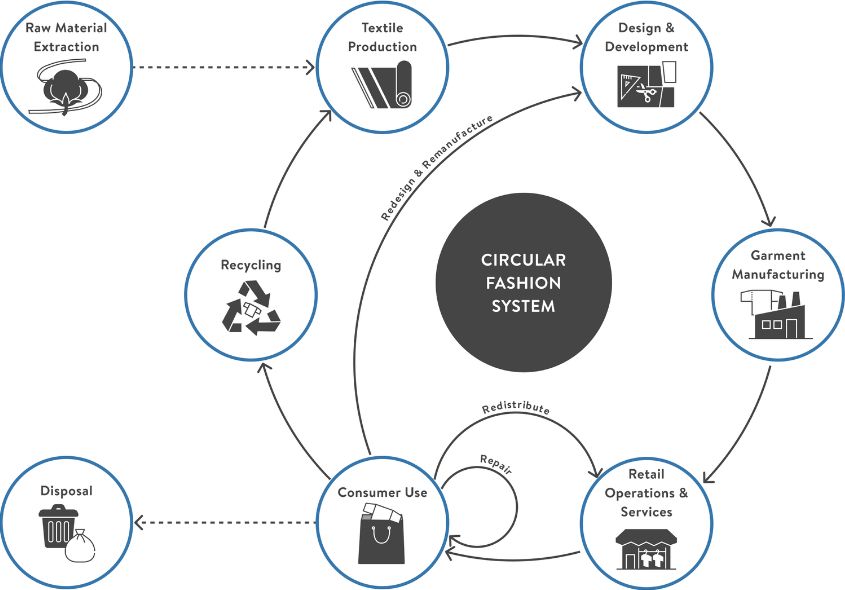
Tensile Strength
Tensile strength in yoga wear marks the line between enduring and disposable. Manufacturers focus on fibers that withstand stretching, pulling. This resilience is key, offering yogis reliability in every posture.
Durable garments resist the wear of time and movement, remaining steadfast. In this, there is a promise – each piece of wear, a lasting companion in the journey of yoga.
Abrasion Resistance
Abrasion resistance is crucial in the crafting of yoga wear. Fabrics endure repeated contacts with mats, floors. Manufacturers choose materials that defy this friction, maintaining texture and integrity.
This ensures that each garment remains unmarred, preserving its look and feel over time. In yoga, where movement is constant, this trait becomes a silent guardian of the garment's life.
Colorfastness
Colorfastness in yoga wear is not just about aesthetics; it's about longevity. Manufacturers ensure colors remain true, unfading. This commitment to quality means that wash after wash, the garment retains its vibrancy. Yogis value this, as their attire remains a reflection of their spirit – bright, enduring, and unwavering in the face of time and use.
Shrinkage Control
Shrinkage control is a testament to the quality of yoga wear. Manufacturers employ techniques ensuring garments retain their shape. This precision in design and fabric choice means yogis can trust their wear. It remains true to form, just like their practice, unaffected by the rigors of repeated washing and wearing.
Stretch Recovery
Stretch recovery is the heart of yoga wear's functionality. Fabrics are chosen for their ability to return to form. This property is vital, as it ensures the garment moves with the yogi, then resets.
Manufacturers prioritize this, knowing it's essential for wear that supports practice, morphing with every pose, then returning, ready for the next.
·Easy-Care
Easy-care in yoga wear speaks to the lifestyle of its wearer. Manufacturers understand this, choosing sports fabrics that demand little, yet give much. Garments are designed to be washed and worn with ease, requiring minimal special attention. This simplicity in care is a nod to the yogi's path – a focus on the essential, the practice.
Pilling Resistance
Pilling resistance in yoga wear ensures the longevity of its appearance. Manufacturers select fibers that resist this common wear. The result is garments that maintain their smooth texture over time.
This attention to detail means yogis can focus on their practice, assured their attire remains as refined as their poses.
Safety and Comfort: Material's Impact on Athletic Gear!
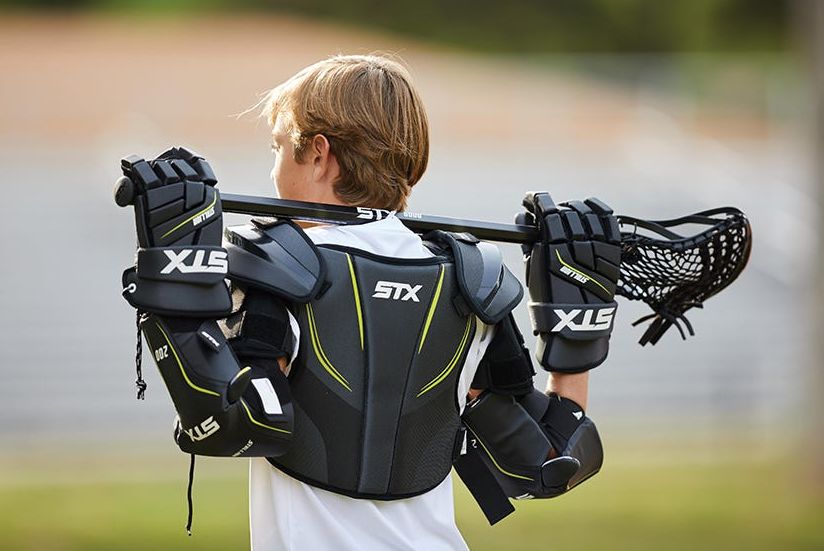
UV Protection
UV protection in yoga wear is a silent shield. Manufacturers infuse fabrics with protective elements, guarding against harmful rays. This feature is vital for outdoor yogis, providing safety under the sun.
Each garment thus becomes more than attire; it's a barrier, a defender. The yogi practices with peace of mind, shielded from the sun's unseen threats.
Antimicrobial
Antimicrobial features in yoga wear are a mark of modern textile science. Manufacturers blend these properties into fabrics, combating bacteria and odor. This ensures hygiene and freshness, even through the most rigorous sessions. The wear becomes a fortress, safeguarding the yogi from microscopic foes. In this, there is comfort, knowing each wear is an ally in cleanliness.
Hypoallergenic
Hypoallergenic materials in yoga wear cater to sensitive skin. Manufacturers choose fibers that reduce irritation, embracing gentleness. This consideration is a whisper of care, a nod to the wellbeing of every yogi. Garments thus become a cocoon of comfort, free from the harshness of allergic reactions. In this soft embrace, the yogi finds a tranquil sanctuary.
Softness
Softness in yoga wear is a tactile poem. Manufacturers seek fabrics that caress rather than constrain. This softness enhances the comfort, allowing yogis to delve deeper into their practice.
Each piece of wear is a gentle companion, a tender support in every stretch and bend. In this softness, there is a subtle luxury, a quiet indulgence.
Thermal Insulation
Thermal insulation in yoga wear is a balance of warmth and breathability. Manufacturers engineer fabrics that maintain body temperature. This technology is a silent regulator, adjusting to the yogi's heat and the room's chill. The garment thus becomes a personal climate control, a subtle guardian against the elements. The yogi practices enveloped in a constant, comfortable embrace.
Impact Absorption
Impact absorption in yoga wear is a testament to thoughtful design. Manufacturers incorporate cushioning in key areas, protecting joints and muscles.
This feature is a safeguard, a buffer against the hard ground. Each piece of wear is thus more than a garment; it's a protector, a guardian. In this, the yogi finds an unspoken confidence, a freedom to move and explore limits safely.
Specialized Sportswear Materials for Specific Sports!
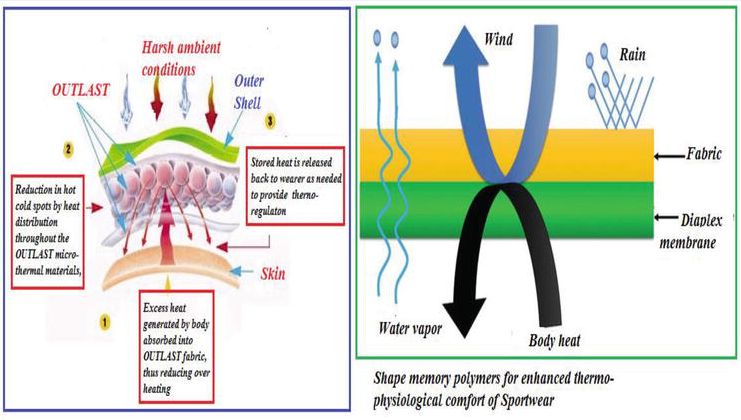
Hydrophobic Coatings
Hydrophobic coatings in yoga wear are a shield against moisture. Manufacturers apply this technology, repelling water and sweat. The fabric remains dry, enhancing comfort and focus.
This innovation is crucial for yogis practicing in humid or outdoor settings. The garment defies water, allowing the wearer to maintain a grip on their practice, unaffected by external dampness.
Aerodynamic Textures
Aerodynamic textures in yoga wear reduce air resistance, enhancing movement. Manufacturers design these fabrics to streamline the yogi's form. This feature is particularly valued in practices that involve dynamic, fast-paced movements. The wear becomes an aid, a subtle boost in every flow and transition, aligning with the body's natural motion.
Grip Enhancers
Grip enhancers in yoga wear are a strategic addition. Manufacturers incorporate them in areas like knees and elbows. This enhances stability in poses, providing extra traction where needed.
The yogi finds confidence in their hold, supported by the fabric's unseen grip. Each wear thus becomes an integral part of the practice, a silent partner in every pose.
Flex Panels
Flex panels in yoga wear allow for unrestricted movement. Manufacturers integrate these into the design, offering elasticity where it matters. This adaptability is key, especially in poses that demand extensive flexibility. The garment moves with the yogi, an extension of their body, accommodating every stretch and bend without constraint.
High-Visibility
High support visibility features in yoga wear are vital for safety. Manufacturers add reflective elements for those practicing in low-light conditions. This feature ensures the yogi is seen, a beacon of safety in dim environments. Whether practicing at dawn or dusk, the wear becomes a protective gear, ensuring visibility and thus safety.
Water Resistance
Water resistance in yoga wear is essential for outdoor practitioners. Manufacturers engineer fabrics to repel moisture, keeping the yogi dry. This feature ensures comfort in unpredictable weather, a guard against the elements. The garment thus becomes more than a clothing piece; its armor against the rain, a companion in the yogi's journey regardless of the skies.
Conclusion
This exploration of materials by yoga wear manufacturers uncovers excellence in sports gear. We have journeyed through fabrics that boost performance. Quality and innovation stand at the forefront.
For superior yoga wear, trust the expertise of yoga wear manufacturers. Visit SANSANSPORTS for leading-edge gear. Join the revolution of high-performance yoga apparel.

 Inquire(
Inquire(
 HOME
HOME Understanding the Supply Chain of Active Wear Production with Sweatsuit Vendor Wholesale!
Understanding the Supply Chain of Active Wear Production with Sweatsuit Vendor Wholesale!  You May Also Like
You May Also Like






















 Tel
Tel
 WhatsApp
WhatsApp
 Email
Email
 Address
Address






